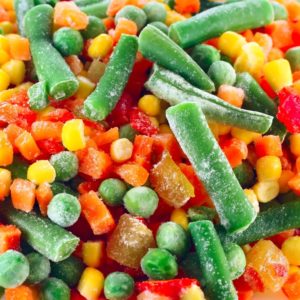Ten Key Items When Shopping For A Healthy Diet

By: Hope Danielson, Director of Health & Wellness
Melanie Kluzek, Registered Dietitian
County Markets
http://www.mycountymarket.com/
One of the best ways to keep your health in check is by cooking and eating more meals at home. Cooking at home enables you to control your own food. You select the ingredients and you can also control portion sizes. You don’t have to spend all day in the kitchen, as many healthy meals can be prepared in less than 30 minutes. The key is a little planning and some smart shopping strategies – and that starts in the store. A lot of times we hear that in order to eat healthy we should shop the perimeter of the grocery store. While there are many healthy items to be found around the outer edges of the grocery store such as fruits, veggies and low-fat dairy, there are also many nutritious items located inside the perimeter.
We suggest to our customers that they shop the perimeter for fresh foods they are going to use that day or within the next couple of days such as produce, dairy and meat. Then they should hit the center and freezer aisles to stock up on kitchen staples such as canned fruits, veggies, beans, lean meats, proteins and juices; as well as frozen fruit, veggies and vegetarian options. Look for end caps where you are most likely to find sale items and quick meal ideas. We also always stress the importance of label reading in order to make healthy choices in the center aisles. There are plenty of healthy options available, but you have to do a little detective work at first.
Keep these top 10 items in mind when shopping for a healthy diet and remember to always shop the entire store.
#1 – Canned fruit and vegetables
Look for fruit packed in natural juice or water with no added sugars and low-sodium or salt-free vegetables. Canned fruits and veggies are just as nutritious as their fresh and frozen counterparts – and in some cases they are more nutritious! These work great in soups, casseroles and fruit salads. Combine canned fruits and veggies for a unique salsa that can be used on top of chicken or pork.
#2 – Canned or pouched tuna, salmon and crab (packed in water)
These offer a budget-friendly protein option that is quick and easy, and requires no prepping or cooking. Homemade salmon patties and tuna/crab melts make a quick lunch or dinner.
#3 – Low sodium stocks and broths
Use these for quick soup and stew recipes. These are also great to use as a base for cooking grains as opposed to water.
#4 – Whole grains
Whole grains like whole wheat pasta, brown rice and quinoa provide a great source of fiber and vitamins. Pair them with a lean protein and heart-healthy fat.
#5 – Shelf stable, 100% low sodium vegetable/100% fruit juice
These are great for a quick and easy way to add a serving of fruit or veggies to your meal. These are great to pack in a lunch or to add to smoothies. Try using juices in crockpot meals, soups or stews.
#6 – Frozen veggies
These can be cooked in a flash and can be just as healthy as fresh. Choose vegetables with no sauces or seasonings added. These are great to use in stir-fry or soup recipes.
#7 – Frozen fruits
Frozen fruit is great to use in smoothies, oatmeal and yogurt. Make sure to choose fruits with no extra sugar added.
#8 – Canned low sodium or no-salt-added beans
Use these for a quick vegetarian protein option or to bulk up the fiber in your recipes. Try using them in a vegetarian burrito, chili or burger.
#9 – Heart-healthy oils
Olive oil is great for cooking while canola oil is better for baking.
#10 – Seasoning
Seasonings are a must for flavoring foods. Choose versatile options such as onion powder, garlic powder, Italian seasoning, cinnamon and all-purpose low sodium seasoning.
Mealtime.org, the Website for the Canned Food Alliance, is home to canned food research, free and shareable resources, information about the canning process, family mealtime tips and recipes that use canned food.
